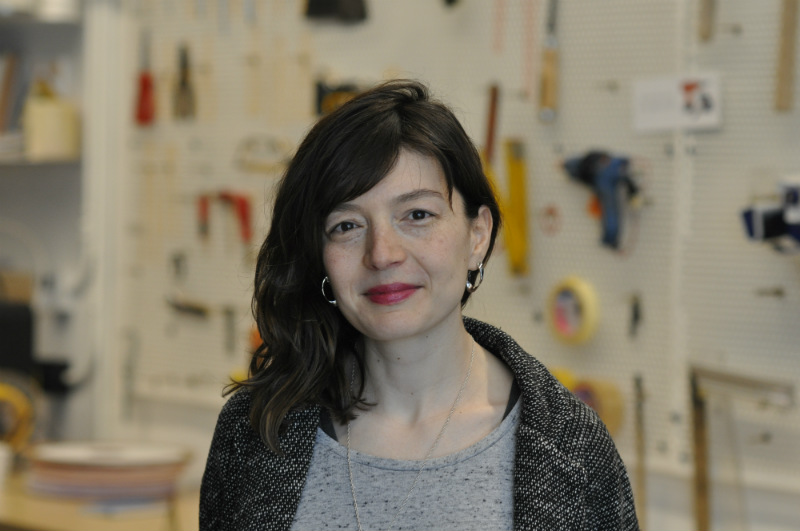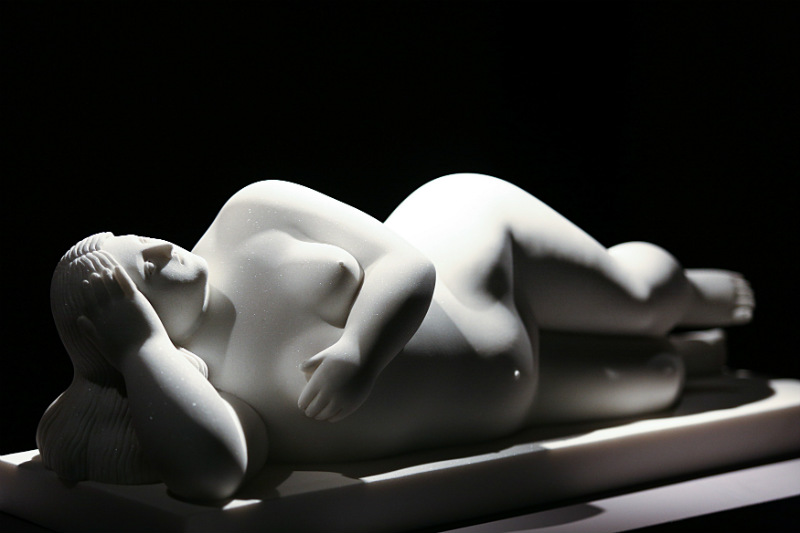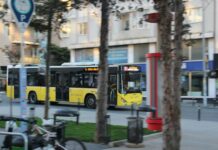The arts and culture scene in Turkey is, even at the best of times, complicated. An intricate network of galleries, artists, curators, and collectors are among those keeping the local community vibrant and evolving, despite the ever-changing landscape in this country. Flint is one indispensable extension of such efforts, emphasizing the importance of long-term communications on behalf of all involved. Funda Küçükyılmaz is the driving force behind the PR firm’s efforts in Turkey, offering an all-encompassing, carefully curated service to members of the local community. With contributions that extend far beyond typical press releases and promotion, Funda’s optimistic demeanor reveals a focus set on the progression and success of Turkey’s arts and culture scene both locally and internationally. Boasting an extensive background in the field and a genuine commitment to the projects she represents, it’s quite uplifting to feel some positivity for the sector after passing through such a challenging period.
Funda took some time to speak with us on the current state of Istanbul’s arts and culture scene, the challenges associated with prioritizing communications in these complex times, and what lies ahead for both Flint and the community at large.

Could you tell us a little bit about yourself and your background?
I was born in Izmir and when I was around 17, we moved to Istanbul. So I finished high school and went to university here. I studied English language literature. This is something I really wanted to study, it’s not coincidence. After university, I wanted to be an academic and pursue my PhD. I was accepted to a US university for cultural studies, but could only stay for a year due to expenses. After coming back to Istanbul, I did some temporary work. As I started making money, I felt my life improve, so I kept working and decided to focus on the arts sector. I’m not an artist, but I found happiness in the area of art administration. During that time, British Council won a European Union bid and were commissioned for a three-year visual arts project across Turkey. It included five cities in Europe, it was a huge project, and after applying I was accepted into the position. This is how I first stepped into the arts sector. After completing the project, I continued work in the arts department. In addition to visual arts, I worked in theater, performance, music, literature, creative economy and many other fields of art. After about ten years, I decided to work in a new place. This is how I wound up working with Flint.
Could you tell us a bit more about Flint?
Flint is a London based communications office, with branches in London, Delhi, Mumbai and Istanbul. They’re an international communications consultancy, with a specialization on arts, culture and luxury sectors. The Istanbul office was founded in 2013 by the ArtInternational art fair. They were a great art fair, but unfortunately had to cancel last year. They had made an agreement with Flint and that’s how they found themselves opening an office in Istanbul. I joined in 2014 and immediately jumped into ArtInternational, because it’s a huge fair that takes all your time. We were also looking for new business. We had the opportunity to work with organizations such as Rampa, Sakıp Sabancı Museum, Cappadox Festival, Art Jameel (Jameel Prize 4 at Pera Museum).M any organizations in Turkey tend to work on a project basis. Here, it’s very rare that organizations plan properly in advance with long-term promotion. It’s not easy to find.
At the moment, we work with Performistanbul, a performance arts platform. We’re also working with Mamut Art Project, focusing on their international PR only. Anna Laudel Contemporary as well. These are three current projects. We’re lucky that they’re more likely to work on media campaigns in the long-term. It allows for long-term impact.
Flint specializes in arts and culture mainly, which makes us difference in Turkey. Here, most of the communication offices are not specializing in one sector. They can do insurance services, while also working with museums for example. We provide a boutique service, and in that sense, my network mostly consists of journalists, bloggers, art writers, critics, galleries, collectors, organization heads from the arts and culture sector, etc. Our job isn’t just writing press releases and sending them out. Most of the time, we’re helping our clients raise their profile. We always try to put them in touch with stake holders or important gallery owners and so forth. It’s not just media contacts, it’s any key person in the sector.
What is your day to day like in this role?
Lots of tea and coffee. [Laughter] Perhaps not every day, but usually there’s a lot of writing and sending off press releases. You often have to chase the journalists as well, it’s never enough to just send the release. I follow up on the arts and culture news, who is doing what in the sector, including journalists, artists, galleries and so forth. Did anyone change their position? Any new projects commissioned? I keep a close eye on that. I have close relations with my clients. I keep up with them and make sure everything is on track.
I can sometimes be responsible for organizing press conferences, delivering content, inviting people, arranging the translator, sorting catering, etc. Depending on the demand and timing, I act accordingly. For example, last year we did an exhibition for the ministry of foreign affairs for Turkey. They asked us to organize the exhibition opening with live music in addition to the press conference. We became responsible for everything from arranging the chairs, to the music and so forth.
How has ATÖLYE fit in?
The first Flint office was in Nişantaşı with the ArtInternational team. After some time, we started looking for an office and visited lots of work spaces. This was the only one that felt like a home. It’s not about having money to afford the space. It’s friendly, cozy, and provides a lot opportunity to collaborate and share experiences and knowledge. It’s very convenient and what we need at this moment.

How many people are involved at Flint?
At the moment I am continuing to run the current business here in coordination with Flint London office. Depending on the content and the size of the projects our number of team changes. In spite of the inconsistent political and economic situation in the country, I feel very positive about the future. There are new projects coming up in arts, culture and luxury sectors and we’re definitely ready for things to get better.
Could you tell us a bit about some of the challenges you face in this field?
In addition to the political problems, economic stability has a really big impact on us. Most of the organizations here don’t prioritize communication. It’s one of the first things they give up. Instead of outsourcing, they try to do it internally and maintain their budget. It’s our biggest challenge and considering Turkey’s economic stability, it can be difficult to have people believe in the value of having a long-term communications plan. Also, because of these things, all of the sudden you can lose a project. Your future is uncertain.
The conditions also make it difficult to bring in foreign press. They might not think it’s safe.
That being said, I don’t want to be negative. There are many entrepreneurs, young people, or business men and women. For example, the businesswoman who invested in Anna Laudel Contemporary. Or the young entrepreneur and curator Simge who founded Performistanbul. Or Seren from Mamut. These people are not afraid of the instability and they keep working. As long as we have this type of movement, things will get better.
Any projects that you’ve found yourself especially personally invested in?
For example, last year we did Cappadox and brought in several journalists from Europe. I enjoyed the festival a lot. The people working for Cappadox were really dedicated. They’re like a family, working for the goodness of the company and region. That was something that really impressed me. I enjoyed doing it.
The three projects I’m currently working with, I personally feel very invested in. They show great courage in spite of the situation in the country. They might not even be making money, but they’re making big investments. I love their dedication and it’s easy to feel really personally invested as well.
What does the future hold for you and for Flint Istanbul?
At the moment, our main aim is to meet as many stakeholders as possible. We want to share the importance of long-term, specialized media campaigns. In the long run, our aim is of course to have more projects. It can be difficult to have a clear vision for the future, but we’re hopeful.
As we’re an advice publication for foreigners living in Istanbul, are there any lesser known places or tips that you’d like to share with our readers?
Personally, even though parts of the area are touristic, I really like Cachi Restaurant/Bar at Adahan Hotel. It’s in Şişhane near the metro. I love the terrace of the hotel. It’s a restaurant/bar. It’s not that fancy or expensive. It’s more like part of a living room — really natural. The sunset there is beautiful, perfect for a cozy evening with a glass of wine.
In terms of meyhane food, I would recommend Aret’in Yeri. They’re very delicious. Aret is an Armenian guy who previously ran another meyhane. He went on to open up his own place. The mezes are really nice and reasonably priced.
Also, I’ve been doing yoga for a long time. I have a friend here who also happens to be my trainer. Her name is İrem Greenfield, she started doing yoga and giving classes in New York. She’s a very tough Vinyasa trainer. If there’s anyone who’d like advanced Vinyasa yoga, which can be hard to find, she’s perfect. She’s bilingual so can work in English. I’d really recommend her. She works at the Om Yoga studio in Beşiktaş.
To keep up with Funda and learn more about her work, be sure to follow the developments at Flint. You can also contact her at funda.kucukyilmaz@flint-pr.com. Anna Laudel Contemporary’s “Everyday’s Poetry – Scenes from the Fullness of Life” is ongoing through Sunday 25 June.
ATÖLYE Spotlight is a new series on the inspiring community members of Istanbul’s most creative space.
All images courtesy of Funda Küçükyılmaz and Ayşe Esin Durmaz.









